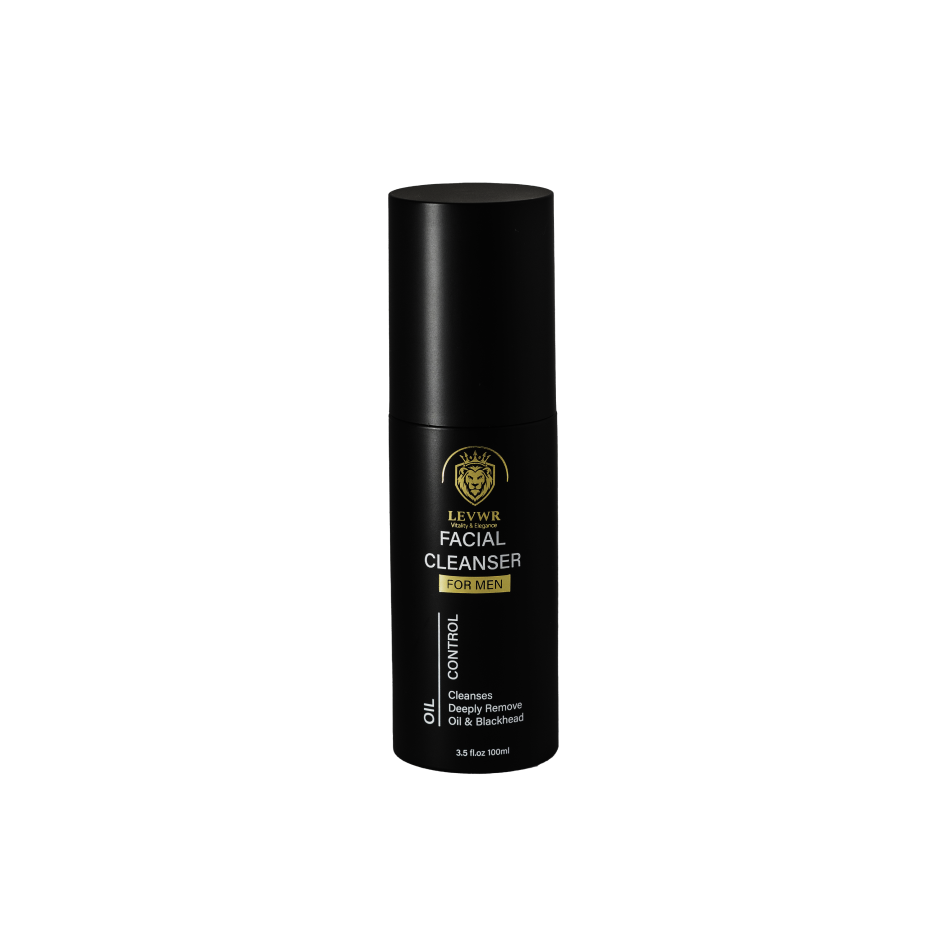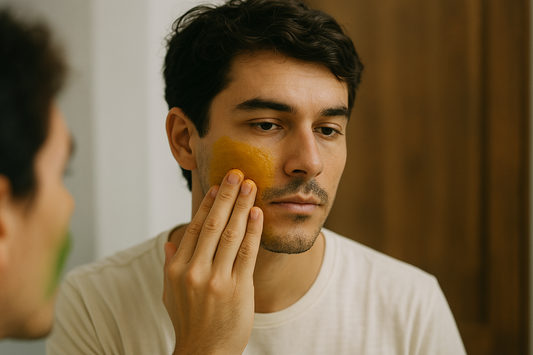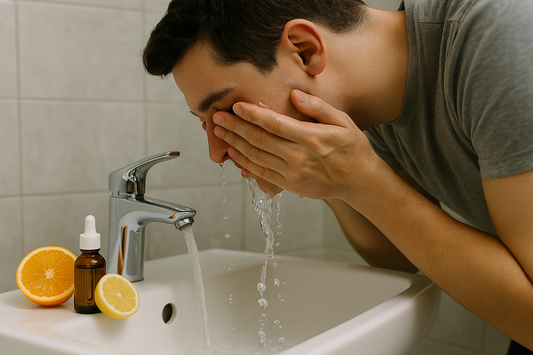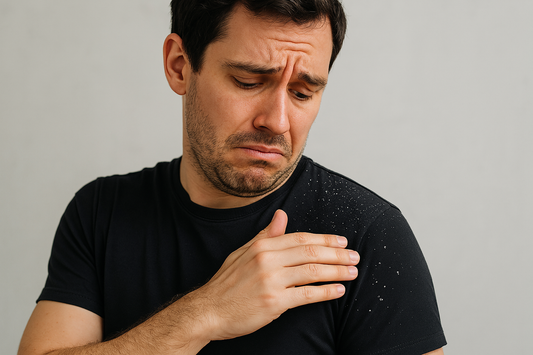Dark Circles Under the Eyes: Causes and Treatments
Levell Rampono
2 mins read

Dark circles under the eyes are a common cosmetic concern that many people face. Whether it’s due to genetics, lack of sleep, or lifestyle factors, these under-eye shadows can make you look tired, stressed, or older than you really are. Understanding the causes behind dark circles and exploring treatment options can help you reduce their appearance and regain a more refreshed and youthful look.
What Are Dark Circles?
Dark circles are those discolored areas that form under the eyes, often appearing as a bluish, purplish, or brownish shade. These circles can be mild or more noticeable, and they can affect anyone, regardless of age or skin type. A study found that around 90% of people have some form of dark circles under their eyes. While dark circles are usually harmless, they can sometimes be a sign of an underlying health issue. The good news is that most cases of dark circles are treatable with the right care and attention.
Causes of Dark Circles
1. Lack of Sleep
One of the most common causes of dark circles is insufficient sleep. When you don’t get enough rest, blood vessels beneath the eyes expand, creating the appearance of dark shadows. Moreover, tiredness can make your skin appear 21% lighter compared to well-rested skin, which makes dark circles more visible.
2. Genetics
Genetics plays a significant role in the formation of dark circles. If your parents have dark circles, there’s a good chance you may develop them as well. In some cases, the skin under the eyes may be naturally thinner, making blood vessels more visible. Additionally, some people are more prone to pigmentation changes in the under-eye area due to family history.
3. Ageing
As we age, the skin loses collagen and elasticity, becoming thinner and more transparent. This natural aging process allows the blood veins under the skin to show through more prominently, resulting in dark circles. The fat around the eyes also diminishes over time, which further emphasizes the appearance of under-eye darkness.
4. Allergies
Allergies can cause dark circles, often referred to as 'allergic shiners.' A study found that around 57% of individuals affected by allergies experience dark circles. When the body reacts to allergens like pollen or dust, it triggers an inflammatory response, leading to swelling and increased blood flow around the eyes. This can cause blood vessels to dilate and create dark circles. Rubbing the eyes due to irritation can also make the condition worse.
5. Dehydration
Dehydration can make the skin under the eyes look dull and puffy. When you don’t drink enough water, the skin becomes dry and loses its natural plumpness, which can accentuate the appearance of dark circles.
6. Sun Exposure
Excessive sun exposure can lead to increased melanin production, causing pigmentation to develop in the under-eye area. Prolonged exposure to UV rays can also damage the skin and exacerbate dark circles over time.
7. Poor Diet
A poor diet lacking essential vitamins and nutrients can also contribute to dark circles. Deficiencies in vitamins such as Vitamin K, Vitamin C, and iron may cause blood veins under the eyes to become more visible. A lack of iron, in particular, can cause anemia, which can make dark circles more pronounced.
8. Hormonal Changes
Hormonal fluctuations, such as changes in testosterone levels due to aging, stress, or medical conditions, can influence skin pigmentation and contribute to dark circles. Hormones can affect blood circulation and the strength of blood veins, making them more visible under the thin under-eye skin.
9. Stress and Fatigue
Chronic stress and mental exhaustion can affect blood circulation, making dark circles more prominent. Lack of proper rest and prolonged stress can also lead to inflammation and moisture retention, further worsening the appearance of under-eye darkness.
10. Smoking and Alcohol Consumption
Smoking reduces oxygen supply to the skin by up to 26.6%, causing it to appear dull and dark. Alcohol dehydrates the body, which can also lead to darker under-eye skin. Additionally, both smoking and alcohol accelerate collagen breakdown, making the skin thinner and causing dark circles to become more noticeable over time.
How to Treat Dark Circles
While dark circles can be persistent, there are several treatments and lifestyle changes that can help reduce their appearance. The key is to address the root cause of the problem and to adopt a holistic approach to care.
1. Improve Your Sleep Habits
Getting enough rest is crucial for maintaining healthy skin, and it's one of the easiest ways to reduce dark circles. Aim for 7-9 hours of sleep each night to allow your body to regenerate. Additionally, consider sleeping with your head elevated to prevent moisture retention that can worsen puffiness and dark circles.
2. Cold Compresses
A cold compress can help constrict blood veins under the eyes, reducing swelling and the appearance of dark circles. You can use chilled spoons, cold cucumber slices, or a damp washcloth placed over the eyes for 10-15 minutes. This method is especially effective if your dark circles are caused by puffiness or moisture retention.
3. Use Eye Creams with Targeted Ingredients
There are many eye creams formulated with ingredients that specifically target dark circles. Look for creams containing:
● Caffeine: Helps reduce puffiness by constricting blood veins and improving circulation.
● Vitamin C: Known for its skin-brightening properties, Vitamin C can reduce pigmentation and boost collagen production.
● Aloe Vera: Soothes and hydrates the delicate under-eye area, reducing inflammation and dryness.
● Almond Oil: Rich in antioxidants and Vitamin E, almond oil nourishes the skin and helps lighten dark circles over time.
● Green Tea Extract: Contains antioxidants that protect the skin and reduce under-eye puffiness naturally.
4. Sun Protection
If your dark circles are caused by sun damage, using a good sunscreen is essential. Sunscreen helps prevent further pigmentation and protects the skin from harmful UV rays. Look for sunscreens with a minimum SPF of 30 and consider wearing sunglasses to protect your eyes from the sun’s glare.
5. Hydration
Staying hydrated is important for keeping your skin healthy and preventing dryness, which can make dark circles more noticeable. Aim to drink at least 8 glasses of water per day, and include hydrating foods like fruits and vegetables in your diet.
6. Address Allergies
If your dark circles are linked to allergies, addressing the underlying condition can improve the appearance of your skin. Over-the-counter allergy remedies, saline sprays, or allergy eye drops can help reduce symptoms. Avoid rubbing your eyes, as it can worsen the condition.
7. Laser Treatments
For persistent dark circles caused by pigmentation or aging, professional treatments such as laser therapy may be effective. Laser treatments work by targeting the pigmentation and stimulating collagen production in the skin. Consult with a dermatologist to determine if laser therapy is right for you.
8. Fillers
If dark circles are due to volume loss around the eyes, dermal fillers can help restore lost volume and smooth the under-eye area. This can help reduce the appearance of shadows caused by hollowing under the eyes. This treatment is best performed by a licensed dermatologist or cosmetic surgeon.
Dark circles under the eyes can be caused by a variety of factors, including lack of sleep, genetics, aging, allergies, and sun exposure. While they can be frustrating, there are several ways to treat and reduce their appearance. Lifestyle changes such as getting enough sleep, staying hydrated, and using targeted eye creams can help alleviate the issue. For persistent concerns, Levwr offers effective skincare solutions designed to target under-eye pigmentation and rejuvenate your skin. By addressing the root causes and taking consistent care of your skin, you can restore a brighter, more refreshed appearance to your eyes.

Purifying Facial Cleanser
$47.25
A foaming cleanser that removes impurities and excess oil while preserving the skin's natural moisture. This gentle yet effective formula prepares the skin for optimal absorption of subsequent treatments.
-

The Power of Nature: Top Skincare Natural Ingre...
When it comes to skincare, everyone wants healthier, glowing skin, and that often means trying different products and ingredients. In recent years, natural skincare has become more popular because it...
The Power of Nature: Top Skincare Natural Ingre...
When it comes to skincare, everyone wants healthier, glowing skin, and that often means trying different products and ingredients. In...
Read More
-

Vitamin C in Skincare: Myths vs. Facts
Vitamin C has long been recognized as one of the most powerful ingredients in skincare. From brightening dull complexions to fighting signs of aging, it seems to do it all....
Vitamin C in Skincare: Myths vs. Facts
Vitamin C has long been recognized as one of the most powerful ingredients in skincare. From brightening dull complexions to...
Read More
-

Causes of Dandruff in Men? Understanding the Tr...
Dandruff is a common scalp condition that affects millions of people worldwide, and it’s no surprise that men are particularly prone to it. Whether you're experiencing flakes in your hair,...
Causes of Dandruff in Men? Understanding the Tr...
Dandruff is a common scalp condition that affects millions of people worldwide, and it’s no surprise that men are particularly...
Read More
- Choosing a selection results in a full page refresh.
- Opens in a new window.


